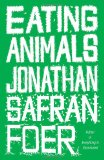Summary | Excerpt | Reviews | Beyond the book | Read-Alikes | Genres & Themes | Author Bio

How Overfishing Is Changing the World and What We Eat
by Charles CloverThe End of the Line, first
published in the UK to wide acclaim, is now
available in the USA, having been extensively
rewritten for an American audience. Clover, who is
the environmental editor for The Daily Telegraph,
one of Britain's leading newspapers, clearly lays
out the simple, and pretty much indisputable facts:
On the one hand, fish are a wonderful source of
health-conscious protein. On the other, man's
appetite for fish has grown with his ability to
catch the fish, at a rate that has already more than
outstripped the sea's ability to provide.
Fishing is still a dangerous business (over the past
10 years a British fishing vessel has been lost at
sea every 12.5 days) but the odds of survival for
the hunters has increased massively, while the
survival rates for the hunted have
been substantially reduced due to the use of all
sorts of gadgets including GPS, acoustic net
monitors, 3D mapping of sea beds, and fishing at
ever increasing depths. The result is that some
fish, such as North Sea skate, bluefin tuna and
northern cod, are on the point of extinction, and
we're within a few decades of permanently destroying
entire marine ecosystems.
Clover neither sensationalizes nor heckles, he
simply lays out the facts, and is merciless at
pointing the finger at the guilty parties - from the
trawlers with vast nets that destroy everything in
their paths, to incompetent and/or dishonest
scientists; to celebrity chefs who proudly display
the "marine equivalent of panda, rhino and great
apes" on their menus; to sports fisherman (23% of
endangered species caught in North American waters
are caught by sports fisherman) and to the general
public for whom eating fish has become "a kind of
dietary talisman". However, it is the governments
that take the greatest tongue lashing, and with good
reason. From self-interested governments who deny
there's a problem and hamper ocean conservation; to
the governments who allow their fishermen to glibly
ignore international rules; to European Union
countries (such as Spain) who buy morally
questionable fishing rights from poor countries for
pathetically small amounts of money.
The extraordinary thing is that the public just
don't seem to care. Endless international agencies
monitor, complain and suggest but little if anything
changes. Victims of even the "friendly" trawling
practices are huge - at least 50% of most catches is
"trash", including whales, turtles, sharks, rays,
and all types of fish that don't meet the grade,
plus the trawlers wreck havoc on the seabed,
destroying entire ecosystems; but other than buying
the odd tin of "dolphin friendly" tuna, the public
seem to be oblivious.
Take for example, McDonald's
"Filet-o-Fish". Ironically, it transpires that the
fillets used at McDonald's are likely to be more
eco-friendly than those you eat in an expensive
restaurants. 90% of the fish in McDonald's 275
million fish sandwiches (sold in the USA each year)
is Alaskan pollock which come from sources certified
by the
Marine Stewardship Council. Apparently
McDonald's does not make marketing capital out of
this fact as it doesn't want to pay royalties for
use of the MSC label. From this one can only
conclude that the public's awareness of fishing
issues is so low that McDonald's don't feel the
trade off in displaying this label would be worth
the tiny fraction of their marketing budget it would
take to pay for royalties!
Is there a solution? Of course there is, but will
the governments and people of the world buy into it?
As a world we need to establish rules for managing
our common resources; large areas need to be
designated as marine reserves, and quotas in other
areas need to be set and kept to - the same
advanced techniques that the fisherman
use to find the fish can be used to monitor the
fishermen. Marine farming offers a partial solution
but comes with its own barrel of worms: Farmed fish
tend to be more prone to diseases which spread to
wild stocks; virtually all farmed fish are
carnivores and therefore need to be fed on other
fish; and farming of some animals, such as shrimp,
can lead to massive changes in nitrogen levels,
damaging the surrounding ecology.
Overall, this is a fascinating, eminently wise book
but one that does not easily reduce to sound bites.
Regrettably, this means that it may not reach the
wide audience of policy makers and consumers that
need to understand in order for change to happen.
![]() This review was originally published in The BookBrowse Review in January 2007, and has been updated for the
April 2008 edition.
Click here to go to this issue.
This review was originally published in The BookBrowse Review in January 2007, and has been updated for the
April 2008 edition.
Click here to go to this issue.

If you liked The End of the Line, try these:

by Hannah Nordhaus
Published 2011
The honey bee is a willing conscript, a working wonder, an unseen and crucial link in America's agricultural industry. But never before has its survival been so unclear - and the future of our food supply so acutely challenged.

by Jonathan Safran Foer
Published 2010
Brilliantly synthesizing philosophy, literature, science, memoir and his own detective work, Eating Animals explores the many fictions we use to justify our eating habits - from folklore to pop culture to family traditions and national myth - and how such tales can lull us into a brutal forgetting.
Your guide toexceptional books
BookBrowse seeks out and recommends the best in contemporary fiction and nonfiction—books that not only engage and entertain but also deepen our understanding of ourselves and the world around us.